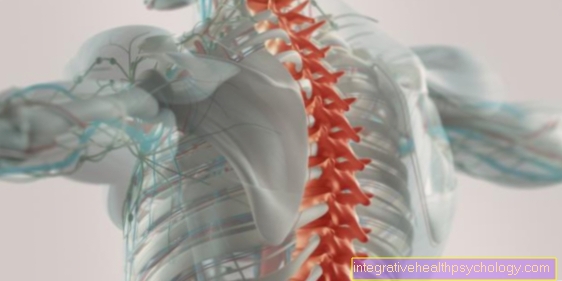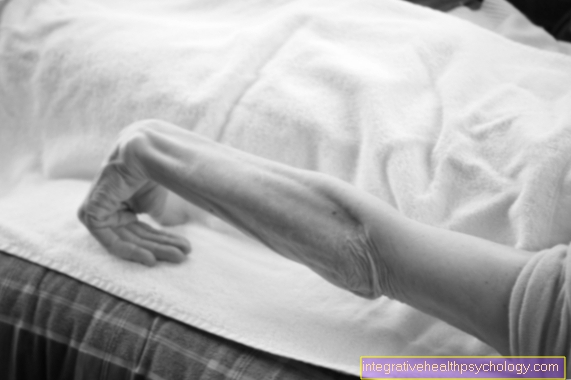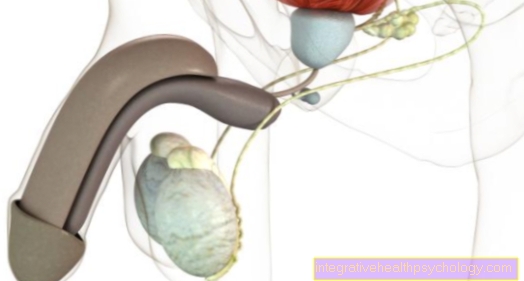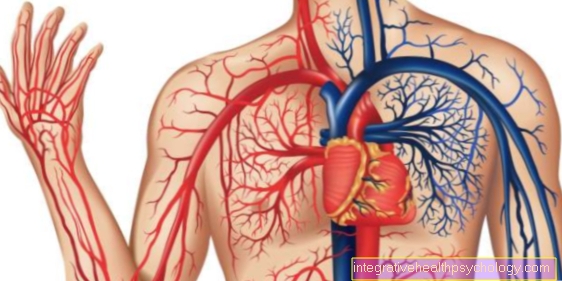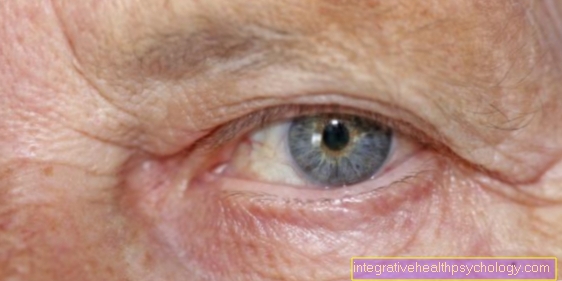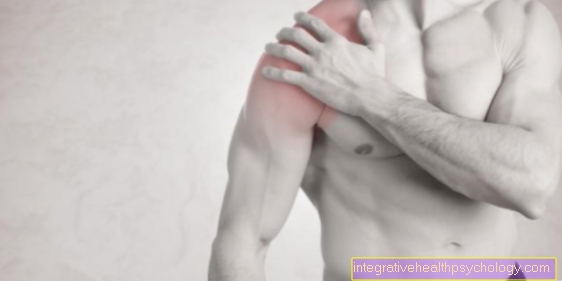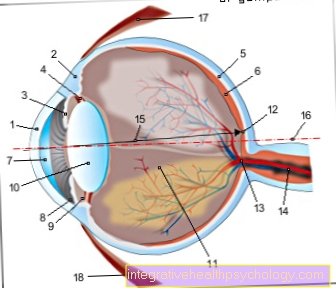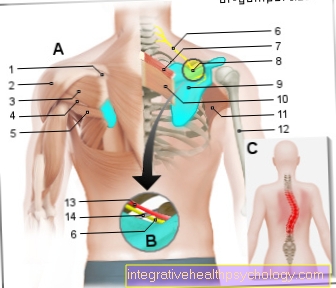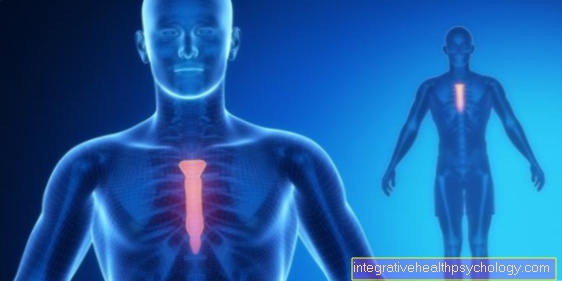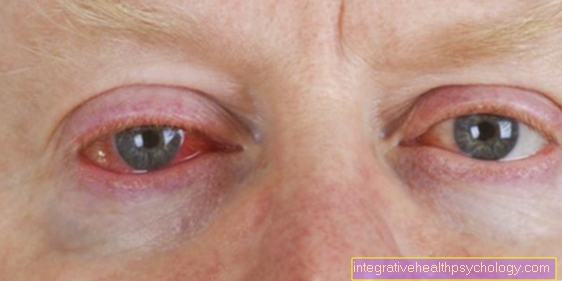Phases of the burnout syndrome
introduction

The term "burnout"Comes from the English and means translated"burn out". Burnout syndrome is the result of a progressive state emotional burnout. This is on heavy loads in professional or other respects and the resulting difficult-to-manage living conditions. Burnout is not officially considered a disease, but it can lead to such as depressions, to lead. The state of exhaustion exists on both a physical and an emotional-spiritual level. Through the resulting stress the resilience of those affected continues to decrease and the process worsens.
Phases
burnout can be divided into 12 phases that build on each other. The system for this developed Herbert Freudenberger, a clinical psychologist who was the first to publish an article on the subject of "burnout" and who drew public attention to this phenomenon. The phases are not as a strict sequence to interpret. The transitions usually merge or overlap. Sometimes those affected are in several stages at the same time or can skip them. This probably also contributes to the fact that burnout is not classified as a disease, because no clear clinical picture can be defined and the Course individually varies from person to person. There are various other systems from various psychologists that serve to describe the phases of burnout. Which is ultimately used does not matter, as the priority is to identify the problem.
Phase 1 - The compulsion or urge to prove yourself:
The urge to prove oneself and to have professional success is fundamentally a positive quality and testifies to it Motivation and determination. However, if the urge becomes one force developed and the life energy flows completely into the professional career, this can be the beginning of burnout symptoms. The desire for recognition gains too much momentum and the expectations to yourself set too high. This initial stage is very difficult to recognize and can be individually misinterpreted. A premature assumption of a burnout problem is not advisable if you are very committed to your job. However, you should take care of yourself and your colleagues or fellow human beings.
Phase 2 - Extreme striving for performance and increased commitment:
The excessive expectations leads to the fact that a perfectly planned implementation is sought to maximize the work performance. The behavior becomes increasingly compulsive and is from extreme commitment and perfectionism embossed. The psychological stress already begins here, because affected people cannot tear their heads away from work and thus, also in their free time, in one State of constant excitement stuck.
Phase 3 - Creeping neglect of social contacts and personal needs:
All activities that are not related to work are done as quickly and effectively as possible. Breaks, a healthy diet or physical activity are secondary and are perceived as time-consuming. Also social contacts slowly lose their value, as these also consume time, which is more urgently needed for the tasks to be completed. The first losses are accepted at the expense of success.
Phase 4 - The repression of internal problems and conflict situations with oneself:
The awareness that something is wrong in life develops and causes fear with those affected. It is actually clear that the job is too demanding, but the diminished well-being is viewed as a necessary sacrifice for professional success. Further withdrawal is the result, since nobody should find out that a crisis is developing increasingly. From this phase of secrecy, the risk increases that Addictions train those affected. The most common result is one Nicotine- and or Alcohol addiction, as both addictive substances are easy to acquire and socially acceptable. Relatives of people who work extremely hard should keep an eye on their alcohol consumption.

Phase 5 - The change in the personal value system:
The personal value system is questioned and adapted to the given circumstances. The first places in the system are no longer occupied by hobbies, friends or family, as before, but by the Pursuit of career. Disorientation prevails among those affected: the perception of time has changed. Both the past and the future are irrelevant because tasks have to be done in the now. The work pressure has now reached a level where the important can no longer be separated from the unimportant.
Stage 6 - Denial of Evolving Problems:
The denial is a protective mechanism for most people. This unconscious behavior tries to protect oneself from the opinions or criticism of other people who have noticed that there is a problem. The Critical ability and tolerance towards others sink and can develop into disregard for colleagues or friends. Increasingly move personal needs in the background. Those affected are becoming increasingly cynical - they draw e.g. ridicule the activities of others and in no way pay attention to people's feelings, let alone social conventions.
Phase 7 - The social withdrawal:
Only the most necessary social contacts have now been preserved. Usually the circle of personally valuable people has come up a minimum reduced - only colleagues who are important for work or close family members are still relevant. The prevailing feelings like Hope and Disorientation plague those affected and push them into one emotional dulling. The withdrawal from the outside world and from oneself continues to take place. Affected people are increasingly disappointed - from themselves and from others.
Phase 8 - The behavior change:
Even in this phase, which is already relatively advanced, the process of Retreat further. A feeling of worthlessness dominates the mood and releases strong ones fears out. Because meanwhile one significant change in behavior is noticeable, those affected increasingly come into contact with colleagues or friends who want to help them by giving them attention. However, this makes most people feel offended - support is not interpreted as such, affection and attention are avoided. A sensitive approach is now necessary, as otherwise the situation can escalate and no further discussions are permitted.
Phase 9 - The Depersonalization:
A mechanism has set in life that is only functional and almost mechanical runs. Every individuality has been lost, including distinctive character traits. This Depersonalization manifests itself through the inability to meet even the smallest personal needs - the feeling for oneself has disappeared, which inevitably leads to internal conflicts and self-denial leads.
Stage 10 - The Inner Void:
The burnout syndrome has advanced to an alarming stage at which those affected have long since reached it Outside help need. An agonizing feeling of inner emptiness spreads and the last spark of belief that you can do something useful is gone. The emaciated people often try to somehow replenish their energy, which usually ends in overreactions. Extremes in the sexuality or at the Eating habits form. Also Drugs or stimulants become tempting and often drive people into one Dependency. Often arise in this phase Phobias with accompanying Panic attacks.

Phase 11 - The Depression:
Without support or self-insight, one will sooner or later develop in the affected person depression out. If this is noticed by friends, colleagues or relatives, a doctor should be contacted urgently, as this is the end of the Burnout syndrome is initiated. There are the classic symptoms of depression: the person is desperate and at the end of his or her strength personal drive has gone out. The motivation to go to work and get involved also disappears, which is a turning point in the priorities. A condition complete lack of perspective is reached. Very bad sleep with the resulting desire to stay in bed all day, life dominates. As with any major depression, you can start now Suicidal ideation occur.
Stage 12 - Total Exhaustion:
The end point of the burnout problem is this total exhaustion on all levels - physically, mentally and emotionally. The initially trained Constraints were filed and even the work has become irrelevant. However, this was the only purpose in life, which is why the Lost meaning in life has gone. Most of the social contacts have been broken off or turned away due to constant rejection - help is not expected. Often stands a mental and physical breakdown before or already took place. The end stage is a absolute medical emergency, because the risk of suicide is extremely high. If those affected themselves or people close to them notice this, is one psychological or psychiatric treatment essential and the only way out of this crisis situation.



